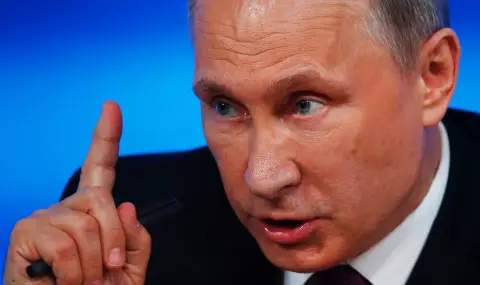EUvsDisinfo: Tinker, tailor, busted Russian spy
Tens of billions of dollars in additional aid to Ukraine, which the US House of Representatives recently gave the go-ahead, has sparked furious and early-bird reactions in the Kremlin's disinformation network.
Like their previous reactions to international aid to Ukraine, Russian propagandists greeted the US financial commitment with a message of criticism and at the same time – of neglect. It eloquently reflects the Kremlin's long-term efforts to manipulate public perception of Western support for Ukraine. Meanwhile, European security services remain vigilant against hidden threats coming from Russia – recent counterintelligence operations have revealed alleged Russian espionage and sabotage activities aimed at destabilizing support for Ukraine: almost like John Le Carré's novel Queen, King, Ace, Spy.
Help is coming
The decision by the US House of Representatives to approve $61 billion in foreign aid to Ukraine has predictably drawn a lot of criticism from the Kremlin's disinformation network. Russian propagandists spread baseless nuclear-flavored talk and the usual Nazi narrative and both denounced the aid decision as an attempt by the US to escalate the war at the expense of Ukrainians and downplayed it as insignificant and unable to affect the course of Russia's war against Ukraine.
Denial, distraction and finger pointing
This duality of disinformation messages shows a clear attempt first – Ukraine and the West, especially the USA, to be presented as the cause of the war in the eyes of the international public. Second – aimed at audiences inside Russia, these narratives aim to downplay the effect of US military aid to Ukraine. The Kremlin is pushing these claims in an attempt to keep morale high as it prepares to mobilize more Russians for its senseless war. Finally, Russian propaganda is persistently trying to drive a wedge between the people of Ukraine and the country's supporters. Russian disinformation agents are spreading the false suggestion that Ukrainians are nothing more than easily replaceable pawns in the hands of their Western backers. Besides being an outright lie, such statements are also an attempt to deny the legitimacy of the protection that Ukrainians provide to their country.
Spy vs. Spy
In recent weeks, security services in several European countries have uncovered Russian spies planning to carry out sabotage operations and assassinations on European soil. Most recently, German authorities arrested two German-Russian citizens on suspicion of espionage for Russia. According to news reports, the two not only gathered intelligence on their Russian sponsors, but also scouted sites for sabotage operations. Their obvious goal was to undermine military support for Ukraine.
Meanwhile, with the help of Ukrainian security services, Polish authorities arrested a person in Poland – the Pole, in addition to collecting information on Russian operatives, was involved in an alleged plot to assassinate Ukraine's President Volodymyr Zelensky.
Initial reactions
Russia's media response following the arrest of its “quiet front” fighters caught at the scene of the crime was expected. It fits into the Kremlin's cycle of lies, in which, after denying the facts, propagandists resort to attacks and attempts to divert attention. In the case of Germany, the Russian authorities provided us with a textbook example. The Russian embassy in Berlin published a statement in which it harshly accused the German authorities of “provocation” and then diverts attention to an unrelated case of an intercepted and leaked conversation between German officers.
EUvsDisinfo/ translation: Representation of the European Commission in Bulgaria
